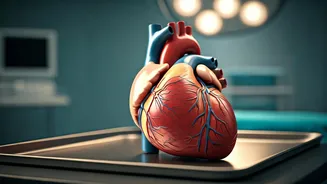Cholesterol: The Basics
Cholesterol is a waxy, fat-like substance essential for the body's proper functioning. It is involved in building cells and producing certain hormones
and vitamins. The liver creates cholesterol, but it can also be obtained through food. High levels of cholesterol, especially low-density lipoprotein (LDL) or "bad" cholesterol, can increase the risk of heart disease and stroke. It's crucial to differentiate between LDL and high-density lipoprotein (HDL), the "good" cholesterol that helps remove LDL from the arteries. Regular health check-ups, including cholesterol screenings, are important to monitor levels and assess overall cardiovascular health. Maintaining a balanced diet, regular exercise, and, if needed, medication can manage cholesterol levels.
Statins: What They Are
Statins are medications prescribed to lower cholesterol levels, specifically targeting LDL cholesterol. They work by inhibiting an enzyme in the liver that produces cholesterol. Statins are often prescribed to individuals at risk of heart disease or who have already experienced cardiovascular events. The effectiveness of statins has been well-documented in numerous studies, showing their ability to reduce the risk of heart attacks and strokes. However, like any medication, statins can have side effects. Some individuals may experience muscle pain, digestive issues, or, less commonly, liver problems. A healthcare professional should carefully evaluate the benefits and risks of statin use for each individual, considering their overall health profile and potential side effects.
Myths vs. Facts
Several misconceptions surround cholesterol and statins. One common myth is that high cholesterol always necessitates medication. While high cholesterol is a risk factor, treatment depends on the individual's overall health profile, including other risk factors like smoking, high blood pressure, and family history. Another misconception is that statins are only for those with very high cholesterol. In fact, statins can benefit those with moderate cholesterol levels if they have other risk factors for heart disease. Some people worry about statin side effects, believing they are always severe. While side effects are possible, they are often mild and manageable. Moreover, the benefits of statins in preventing severe cardiovascular events generally outweigh the risks. Consulting with a healthcare provider is essential for obtaining personalized information and addressing any health concerns.
Misdiagnosis & Complications
Misdiagnosis can occur if cholesterol levels are not assessed accurately or if other risk factors are overlooked. The reliance on a single cholesterol reading without considering a complete cardiovascular risk assessment is a pitfall. Additionally, assuming that cholesterol is the sole cause of heart disease can lead to an incomplete understanding of individual health risks. Complications arise when high cholesterol is not treated appropriately, leading to the buildup of plaque in the arteries, a condition known as atherosclerosis. This can lead to heart attacks, strokes, and other cardiovascular events. Regular monitoring of cholesterol levels, along with lifestyle modifications and medication when appropriate, helps prevent these complications. Early diagnosis and proactive management are crucial for minimizing cardiovascular risks.
Preventing Issues
The key to preventing cholesterol-related complications includes several proactive steps. Regular health check-ups are essential for monitoring cholesterol levels and overall cardiovascular health. A heart-healthy diet low in saturated and trans fats can help manage cholesterol levels. Incorporating regular physical exercise, such as brisk walking or jogging, helps improve good cholesterol levels. For those at high risk or with existing heart conditions, statins can be a crucial component of their treatment plan. Moreover, it's essential to educate oneself about cholesterol and related health concerns. Engaging in open communication with a healthcare provider regarding health conditions, medication, and any concerns helps ensure better management and prevention of complications.



















